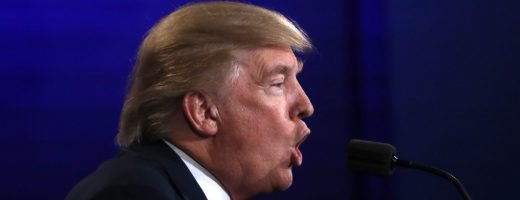Boston News: MIT Tackles Universal Basic Income, Negative Reviews, and More

Let’s visit some of the biggest news coming out of Boston business schools this week.
12-Year Study Looks at Effects of Universal Basic Income – MIT Sloan Newsroom
MIT Sloan School of Management associate professor Tavneet Suri, alongside nonprofit company GiveDirectly, will conduct a lengthy, 12-year study into the effects of the constant hot-button issue of universal basic income. UBI is a basic concept that an acting government will assist its citizens by distributing a recurring stipend, supplementing the loss of jobs to things like automation.
“Suri is conducting the research along with MIT professor Abhijit Banerjee, Princeton professor Alan Krueger, University of California San Diego professor Paul Niehaus, and GiveDirectly president Michael Faye. Overall, GiveDirectly expects to transfer $25 million to more than 21,000 people (not including the control group), 5,000 of whom will receive cash transfers for 12 years. The money comes with no strings attached.”
Read more about the extensive MIT UBI study here.
The Costs and Benefits to Responding to Negative Online Reviews – BU.edu
When BU Questrom marketing professor Georgios Zervas and USC’s Davide Proserpio looked into thousands of TripAdvisor reviews, they found a fairly surprising turn: hotel managers that actively engaged with reviewers, positive or negative, may have actually helped their overall ratings. Zervas notes that it actually diminished the number of negative reviews because users were more wary when they saw hotel staff members participating in a conversation.
However, the two found that the reversal cause of this interaction was that negative reviews who did leave reviews, after engaging with the hotel staff, tended to leave longer reviews—which often made the negative details much more elaborated and personal. Zervas notes this is still probably good overall, saying, “The remaining negative reviews are detailed and contain constructive feedback that [hotel management] can act upon.”

BU professor Georgios Zervas and USC’s Davide Proserpio found uniquely beneficial ways companies can utilize review sites like TripAdvisor.
Read more about BU Questrom’s study on TripAdvisor here.
What Could Amazon’s Approach to Health Care Look Like? – HBR
The Amazon, Berkshire Hathaway, and JP Morgan Chase venture to disrupt the healthcare industry led to a minor panic for other healthcare shareholders, but its potential impact is still fairly uncertain. HBR writer Robert S. Huckman and admitted Amazon shareholder recently explored the potential positive impacts, including simplifying a very complex U.S. healthcare prescription service industry, “simplifying data capture,” and the repeated effort from Amazon to improve its services to regular customers.
On the latter reason, Huckman explains, “Amazon has an internal challenge — managing the health and health spending of its employees — that is shared by many other companies. Yet Amazon likely does not have a full “solution” in mind just yet. Rather, it has ideas and hypotheses to test. By creating a space in which those ideas can be tested, Amazon may be able to play a key role in allocating resources to solutions that show themselves, over time, to be promising.”
You can read more about Huckman’s outlook for Amazon healthcare here.
Stay up to date with all news from the Boston metro, as well as our MetroMBA Boston twitter feed, today.
Questrom Professor Very Skeptical of Trump Economic Plan

Through the endless waves of scandals, soundbites and all-around misery-inducing headlines caused by the “is this over yet?” 2016 U.S. presidential election, there is still the matter of policy.
And like so many questions tossed on the mountain of concerns of a potential victory for Republican candidate Donald Trump, economic reality is becoming tough to ignore.
Boston University’s Questrom School of Business professor and former Federal Bank examiner Mark T. Williams is among many in the hesitant camp, citing the improbable logistics of Trump’s proposed economic plan. In a guest post with Business Insider, Williams plainly states, “ There is good reason few economists have endorsed Trump’s economic plan.”
“Trump claims his ‘America First’ plan will grow the U.S. economy over the next decade by a whopping 3.5 to 4 percent, generating 25 million new jobs,” he writes. “For perspective, the 1980s much lionized Reagan-era only generated 16 million. If Trump can deliver, who wouldn’t want this economic utopia? Unfortunately, his policy is not grounded in reality.”
To call Williams just skeptical of Trump’s proposed idea would be a disservice. The entire piece acts as a commanding dissection of every angle of the potential policies, from muting global trade, lowering corporate tax rates, trickle-down economics, eliminating financial regulations and even Trump’s much talked-about immigration policies.
“Further, Trump claims that restricting immigration will create economic prosperity. But history has proven this will have the opposite effect,” he writes.
“Immigration helps increase the labor pool of skilled and unskilled workers. More people working, paying taxes, buying homes, and starting new businesses lifts U.S. economic growth. Due to existing demographics, greater restrictions on immigration would only exacerbate the current labor shortage and hobble further economic growth.”
Williams, the author of Uncontrolled Risk: The Lessons of Lehman Brothers and How Systemic Risk Can Still Bring Down the World Financial System, cements his argument with a simple, “It ignores history, uses failed policy, promises what is impossible and, if implemented, would cause significant harm to an ever strengthening U.S. economy.”
